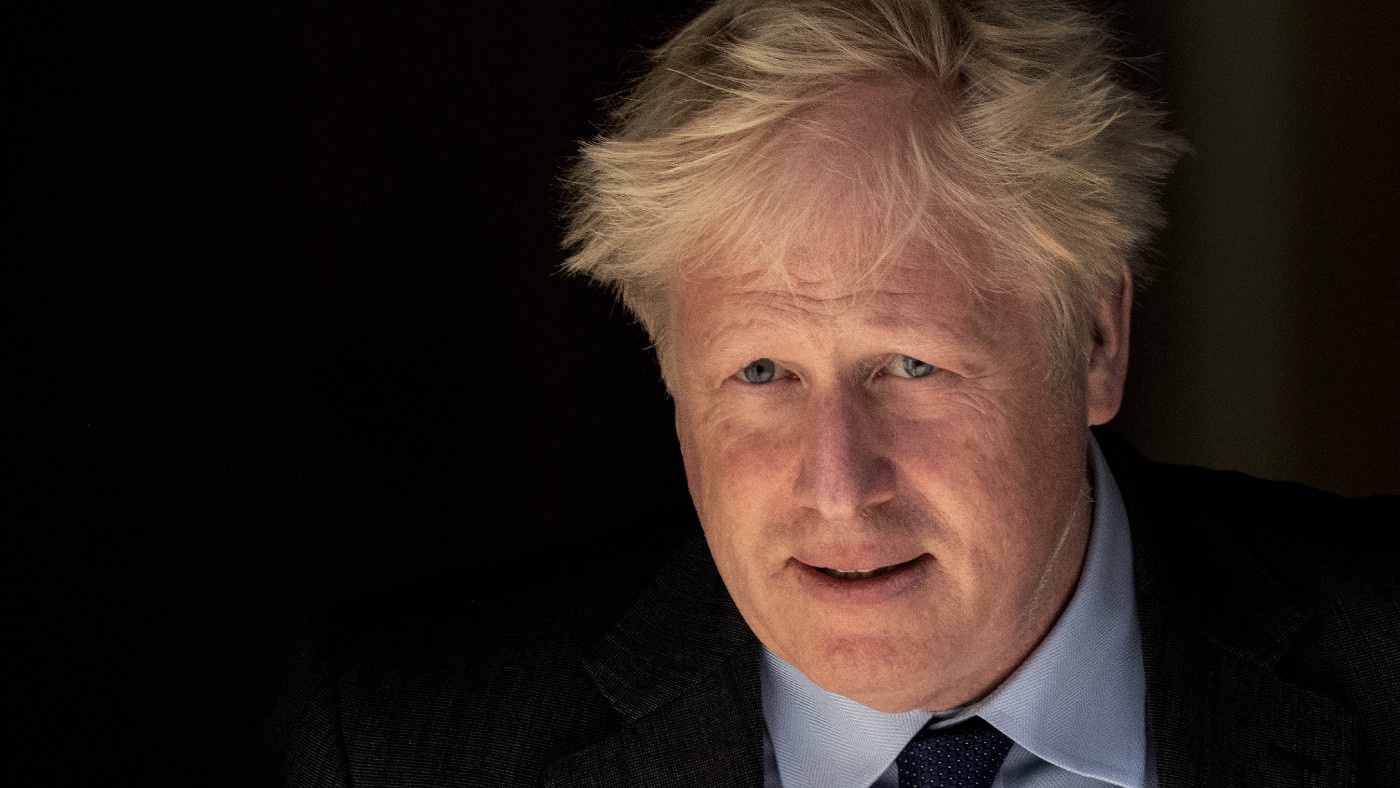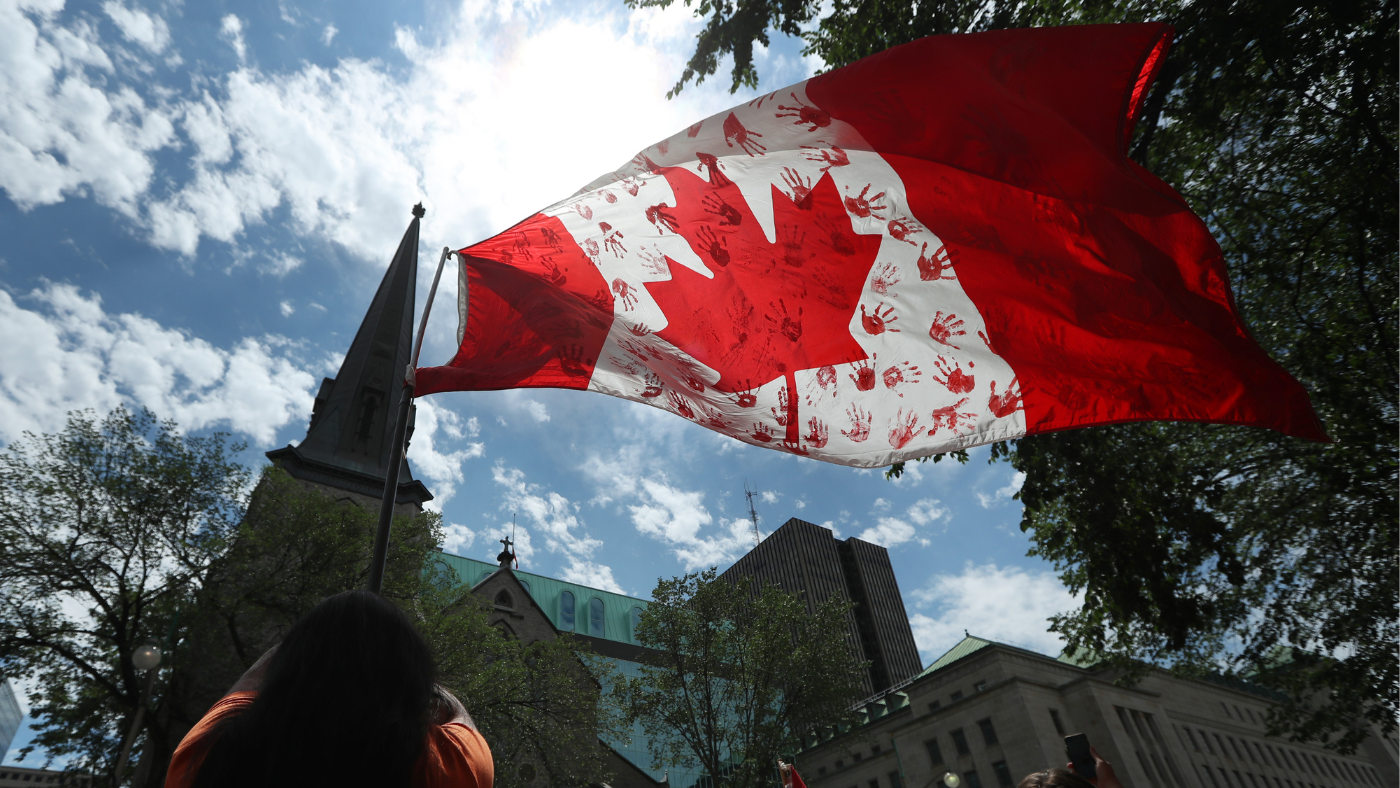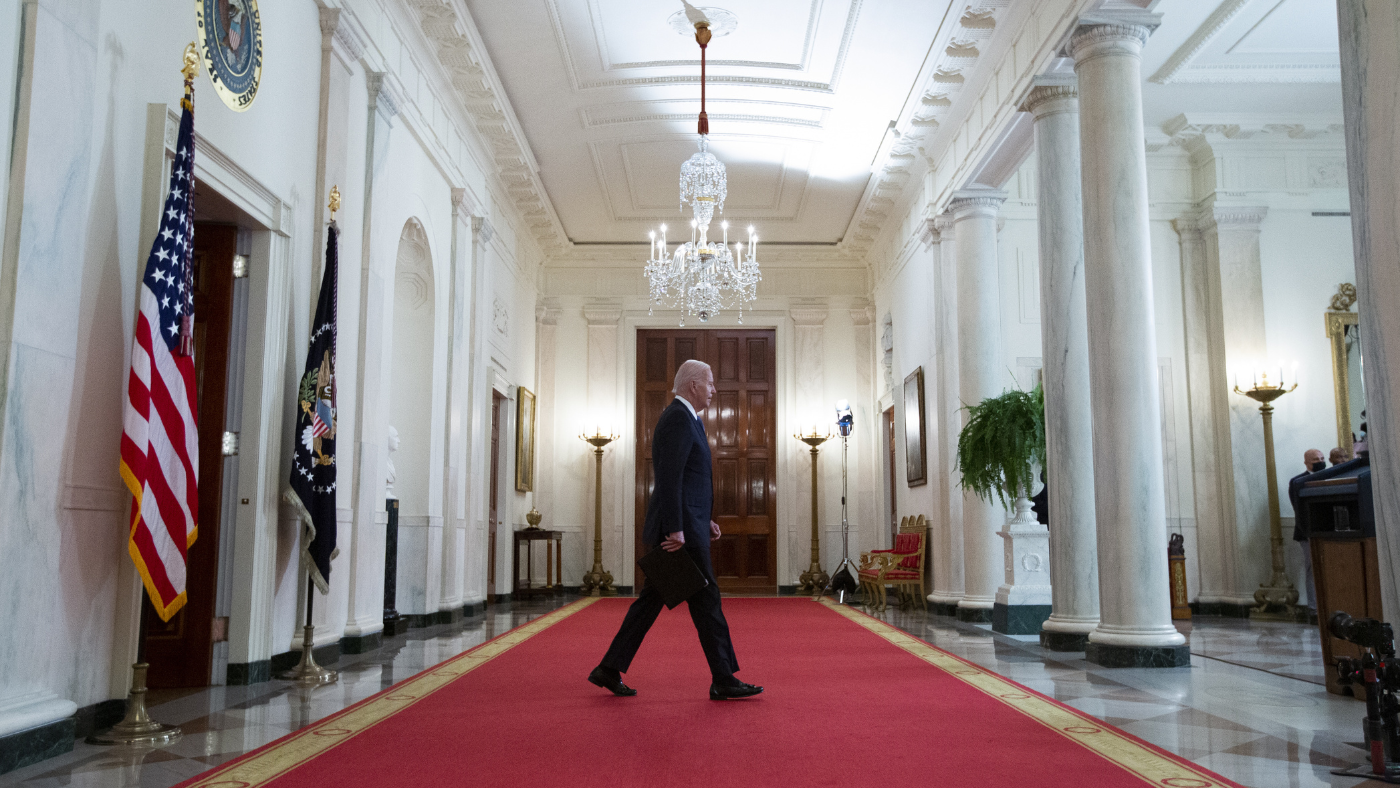‘The Tories have no idea that worse is to come’
Your digest of analysis from the British and international press

- 1. The Tories have been utterly humiliated. If Boris Johnson stays, they are doomed
- 2. There’s a simple way to unite everyone behind climate justice
- 3. Elon Musk is not the populist he pretends to be
- 4. Craven universities have appeased anti-free speech zealots
- 5. Why I’m too scared to go to festivals like Glastonbury
A free daily email with the biggest news stories of the day – and the best features from TheWeek.com
You are now subscribed
Your newsletter sign-up was successful
1. The Tories have been utterly humiliated. If Boris Johnson stays, they are doomed
Nigel Farage in The Telegraph
On a looming wipeout
Following defeats in both of yesterday’s by-elections, the Conservatives still “have no idea (in electoral terms) that worse is to come”, argues Nigel Farage in The Telegraph. The former UKIP leader and MEP says that Boris Johnson is “a cheerleader, not a leader”, and “in his efforts to please everyone he has pleased no one”. Farage says that the lesson from the Tiverton and Honiton result in particular is clear: “this is above all about the character of Boris Johnson and his cavalier approach to the truth.” Rural, middle-class England “is a law abiding place where honesty and truthfulness really matter”. If a “Liberal Democrat triumph in rural Devon” does “not provoke a Conservative Party rebellion then they are on course for a 1997-style wipeout” and if Johnson stays on as leader they are “doomed”.
The Week
Escape your echo chamber. Get the facts behind the news, plus analysis from multiple perspectives.

Sign up for The Week's Free Newsletters
From our morning news briefing to a weekly Good News Newsletter, get the best of The Week delivered directly to your inbox.
From our morning news briefing to a weekly Good News Newsletter, get the best of The Week delivered directly to your inbox.
2. There’s a simple way to unite everyone behind climate justice
George Monbiot in The Guardian
On debts and destruction
“Rich nations owe a massive climate debt to poorer nations for the devastating impacts of the fossil fuels we have burned,” says George Monbiot, but they have “no intention of paying for the loss and damage they have caused”. Poor countries, meanwhile, “are deemed to owe massive financial debts to the rich nations, yet they cannot pay them without destroying their economies and their ecosystems”. He lauds the “brilliant idea” from Debt for Climate “to cancel both the climate and the financial debts, liberating the money poorer nations need to take climate action”. By “reviving the question of who owes what to whom, huge constituencies, labour and green, north and south, can develop a common platform,” writes Monbiot. “Climate campaigns are indivisible from global justice.”
A free daily email with the biggest news stories of the day – and the best features from TheWeek.com
3. Elon Musk is not the populist he pretends to be
Isaac Lozano in the Los Angeles Times
On a ‘typical capitalist’
Elon Musk “often portrays himself as a maligned man of the people”, says Isaac Lozano in the Los Angeles Times, but “his record reveals that he’s hardly a populist ally”. In 2019, Musk broke California labour laws in a bid to prevent Tesla factory workers from forming a union, Lozano writes, and the company omitted hundreds of worker injuries from its workplace reports. Musk also paid nothing in federal income taxes in 2018. The entrepreneur nevertheless remains popular, which is “partially explained by the mythology of billionaire saviorism: that the needs of society can be addressed not through social safety nets but through a rich guy’s vision of grandeur”. Musk “seems to have successfully marketed himself as a populist, when behind the facade is a typical capitalist whose main agenda is perpetuating the system that has brought him billions”.
4. Craven universities have appeased anti-free speech zealots
Jawad Iqbal in The Times
On fanatical findings
“The latest survey of what students actually think” paints a “disturbing picture of a student body that is ferociously intolerant and unwilling to be exposed to any viewpoint it doesn’t share,” writes Jawad Iqbal in The Times. “The idea of banning certain groups or issues from all public discussion – censorship, in other words – is accepted by the majority.” The Higher Education Policy Institute poll revealed an “almost fanatical desire to police viewpoints”, he writes, and “the truth is that it is not just the students who are careless about free expression”. In fact, the people in charge are no better. “Instead of trying to educate and engage the student body on the importance of freedom of inquiry, university leaders have repeatedly prioritised appeasing campus zealots.”
5. Why I’m too scared to go to festivals like Glastonbury
Furvah Shah in The Independent
On unwanted advances
“I’ve always been enticed and excited by British festivals, but I have never attended one,” writes Furvah Shah for the Independent. Friends who have been to festivals have described to Shah the “rowdiness, the sexual harassment and assault, the drug use, and the fears of being crushed, which are often seen as so commonplace that they have pushed me away from the idea of attending”, she explains. A survey found that nearly half of female festivalgoers have experienced unwanted sexual behaviour when in attendance, and although more than 100 UK festivals have signed up to the Safer Spaces at Festivals campaign, which pledges to tackle incidents of sexual violence with a survivor-led approach, Shah worries this “won’t be enough”. As this summer’s biggest events for British music approach, she urges festival organisers to “think more carefully about how to keep festivalgoers from all backgrounds safe”.
-
 Political cartoons for February 16
Political cartoons for February 16Cartoons Monday’s political cartoons include President's Day, a valentine from the Epstein files, and more
-
 Regent Hong Kong: a tranquil haven with a prime waterfront spot
Regent Hong Kong: a tranquil haven with a prime waterfront spotThe Week Recommends The trendy hotel recently underwent an extensive two-year revamp
-
 The problem with diagnosing profound autism
The problem with diagnosing profound autismThe Explainer Experts are reconsidering the idea of autism as a spectrum, which could impact diagnoses and policy making for the condition
-
 Triangle-headed aliens touched Goldie Hawn
Triangle-headed aliens touched Goldie HawnTall Tales And other stories from the stranger side of life
-
 Boris Johnson shocks UK by resigning from Parliament
Boris Johnson shocks UK by resigning from ParliamentSpeed Read
-
 Bees delay flight for three hours
Bees delay flight for three hoursfeature And other stories from the stranger side of life
-
 ‘The UK’s malaise will not end with the Prime Minister’s exit’
‘The UK’s malaise will not end with the Prime Minister’s exit’Instant Opinion Your digest of analysis from the British and international press
-
 ‘Police tactics are not getting worse, they are simply being filmed’
‘Police tactics are not getting worse, they are simply being filmed’Instant Opinion Your digest of analysis from the British and international press
-
 ‘G7 leaders missed a golden opportunity’
‘G7 leaders missed a golden opportunity’Instant Opinion Your digest of analysis from the British and international press
-
 ‘It takes some soul searching to celebrate Canada Day’
‘It takes some soul searching to celebrate Canada Day’Instant Opinion Your digest of analysis from the British and international press
-
 ‘Breakthrough on abortion rights could be there if Biden reaches for it’
‘Breakthrough on abortion rights could be there if Biden reaches for it’Instant Opinion Your digest of analysis from the British and international press